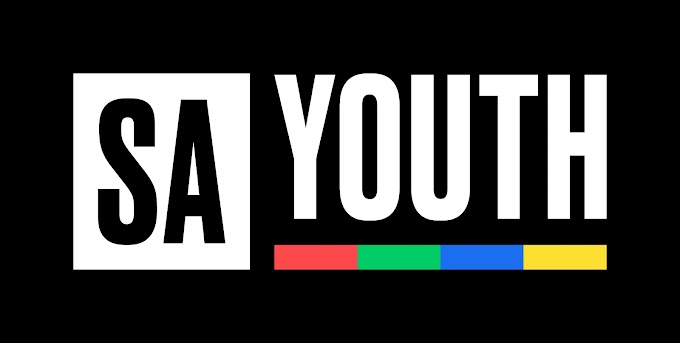How to become a Traffic Cop in RSA
How to become a Traffic Cop in South Africa
1. WHY IS THE CAREER OF A TRAFFIC OFFICER SO IMPORTANT?
Traffic officers enforce the road rules and signs.
They ensure a safe passage in traffic and that all road users – including pedestrians – use our roads in an orderly and safe manner.
The main purpose of traffic officers is to ensure the safe and free flow of traffic to prevent road crashes and deaths on our roads.
2. WHAT DOES ONE DO IN THIS CAREER?
A distinction is made between provincial traffic officers and municipal traffic officers. Provincial traffic officers perform their duties within the boundaries of provinces, while municipal traffic officers perform theirs within the boundaries of municipalities.
Provincial traffic officers are also known as provincial inspectors.
They enforce compliance of the National Road Traffic Act, National Land Transport Act and Administrative Adjudication of Road Traffic Offences Act.
They control traffic, inspect vehicles for roadworthiness, and enforce road traffic signs and the rules of the road.
3. WHAT WILL THE WORKPLACE BE LIKE?
Provincial inspectors and traffic officers spend most of their working hours outdoors on the road.
A small portion of their time is spent in courtrooms and offices doing administrative duties.
They do their patrol duties mainly in motorcars, although some of their duties are performed on motorcycles or on foot.
4. WHAT INSTRUMENTS, TOOLS OR MATERIALS WILL ONE WORK WITH?
Traffic officers are responsible for law enforcement.
They will be working with a speed-measuring apparatus, an alcohol test apparatus, measuring tapes, mass-measuring apparatus, a summons book, infringement notices, etc.
5. WHAT ARE THE ADVANTAGES AND DRAWBACKS OF THIS CAREER?
Advantages: Working with people and helping them to obey traffic rules, assisting to reduce the number of road crashes and thus saving lives.
Drawbacks: The need to be able to work with people with difficult personalities, having to work during holidays and on weekends, and performing duties in all different weather conditions.
6. HOW DO I BECOME A TRAFFIC OFFICER?
You will first need to be employed by provincial government, a municipality or a government entity such as the Road Traffic Management Corporation (RTMC) or the Cross Border Road Transport Agency.
Vacant posts are advertised by these authorities in the open media.
You will therefore need to constantly check your local or national newspapers.
You may also contact any local or provincial authority directly to enquire as to whether vacancies exist within the departments and when the relevant posts will be advertised.
7. WHAT ARE THE MINIMUM REQUIREMENTS TO BECOME A TRAFFIC OFFICER?
· South African citizenship;
· Grade 12 or equivalent;
· No criminal record;
· Code B driving Licence ( manual transmission);
· Medical certificate – that a person may do strenuous exercises; and
· Grade 12 or equivalent;
· No criminal record;
· Code B driving Licence ( manual transmission);
· Medical certificate – that a person may do strenuous exercises; and
· Applicants shall not be older than 35 years of age.
8. WHERE DO I UNDERGO TRAINING AS A TRAFFIC OFFICER?
Once you are employed as a traffic officer /traffic trainee, you will be sent to one of the 12 traffic colleges approved by the Minister of Transport.
Only the traffic colleges and metro police academies in the table below may currently train traffic officers in South Africa.
9. WHAT IS THE DIFFERENCE BETWEEN A METRO POLICE OFFICER AND A TRAFFIC OFFICER?
Traffic officers undergo the basic traffic officer training and then commence with their duties.
Metro police officers are trained as traffic officers and thereafter on certain functions of police officers.
Therefore, before you can become a metro police officer, you must be trained and registered as a traffic officer. In addition to all their duties as traffic officers, metro police officers also focus on crime prevention and the enforcement of municipal by
10. CAN I STILL TRAIN ON MY OWN AS A TRAFFIC OFFICER, EVEN IF I AM NOT EMPLOYED?
Definitely not. However, you can study traffic management-related courses at various FET colleges or universities.
These courses may give you an advantage, should authorities or municipalities advertise traffic-related posts.
Address | Head of the College | E-mail | Telephone | Fax | Name of Training Institution |
|---|---|---|---|---|---|
Provincial Colleges | |||||
Postal Address:Private Bag X4000 Mutale 0956 Physical Address:Thengwe Road (Next to Mutale Driving Licence Testing Centre) Tshilamba Mutale 0956 | Ms R Netshiavendza | (015) 967 9314 (015) 967 9300 | (015) 967 0467 | Limpopo Traffic Training College | |
Postal Address:Private Bag X722 Pretoria 0001 Physical Address:Plot 81, Sandui Street Pretoria West 0001 | Mr SWJ Jacobs (Acting Head of BHKTC) | (012) 372 8007 (082) 887 6746 | (012) 372 0401 | Boekenhoutkloof Traffic Training College | |
Postal Address:Private Bag 9065 Pietermaritzbrug 3200 Physical Address:240 Burger Street Pietemaritzburg 3201 | Mr Reon du Plessis | (033) 394 0202 | (033) 342 7711 | KwaZulu-Natal Traffic Training College | |
Postal & Physical address:Church Street Bloemfontein 9300 | Mr K E Sease | (051) 409 0437 | (051) 876 2449 | Lengau Traffic Training College | |
Postal Address & Physical Address:81 Charles Street Bloemfontein 9300 | Mr Wayne Peens | (051) 412 8100 | (051) 406 6499 | Mangaung Traffic Training College | |
Postal Address:Private Bag X5 Brackenfell Cape Town 7561 Physical address:Brackenfell Boulevard Brackenfell 7560 | Mr F Payne | (021) 980 9121 | (021) 982 1764 | Gene Louw Traffic College | |
Metro Academies | |||||
Postal Address:PO Box 49 Pinetown 3600 Physical address:Anderson Road Lahee Park (Behind Sanlam Centre) Pinetown | Ms W Zama | (031) 322 4461 | (031) 701 0160 | Durban Metro Police Department Academy | |
Postal Address:PO Box 4068 Johannesburg 2000 Physical address:No1 Stevens Road Stafford Booysens Johannesburg | Director M Kgaswane JMPD: Academy | (011) 429 5000 | (011) 493 1675 | Johannesburg Metro Police Department Academy | |
Postal Address:PO Box 4133 Pretoria 0001 Physical address:Premos Staatsartilirie Road Pretoria 0001 | Mr Johnny De Kela | (012) 358 0005 | (086) 640 5111 (012) 359 6174 | Tshwane Metro Police Department Academy | |
Postal Address:P O Box 14115 Sidwell Port Elizabeth 6061 Physical address:Lakeside Road Green Bushes Port Elizabeth 6001 | Ms Julia Nonzinyana (Acting Head of College) | (041) 390 4515 | (041) 327 2276 | Port Elizabeth Traffic Training College. | |
Postal Address:P O Box 708 Welkom 9460 Physical address:2 Kwartz Street Welkom | Mr Solly Mokoena | (057) 391 3295 | (057) 352 3821 | Matjhabeng Traffic Training College | |
Postal & Physical Address3 Hadebe street Kwa-Thema Springs 1560 | Ms U Naidoo Ms Carin Heyneke | (011) 812 8700 | (086) 608 0006 (086) 692 8824 | Ekurhuleni Metro Police Department Academy | |
Postal & Physical AddressC/o Lower Main and Station Roads Observatory 8000 | Mr Rizaa Coetzee | (021) 444 7301 or (021) 444 7304 | (086) 273 9195 | Cape Town Metropolitan Police Training Academ |
Please be informed that there are only 12 approved Traffic Training Colleges in South Africa (see above).
Only these colleges can issue a diploma with which a person can be registered as a traffic officer, in terms road traffic legislation.
Beware of any non-approved training service providers, who offer basic training in traffic or traffic-related aspects.







